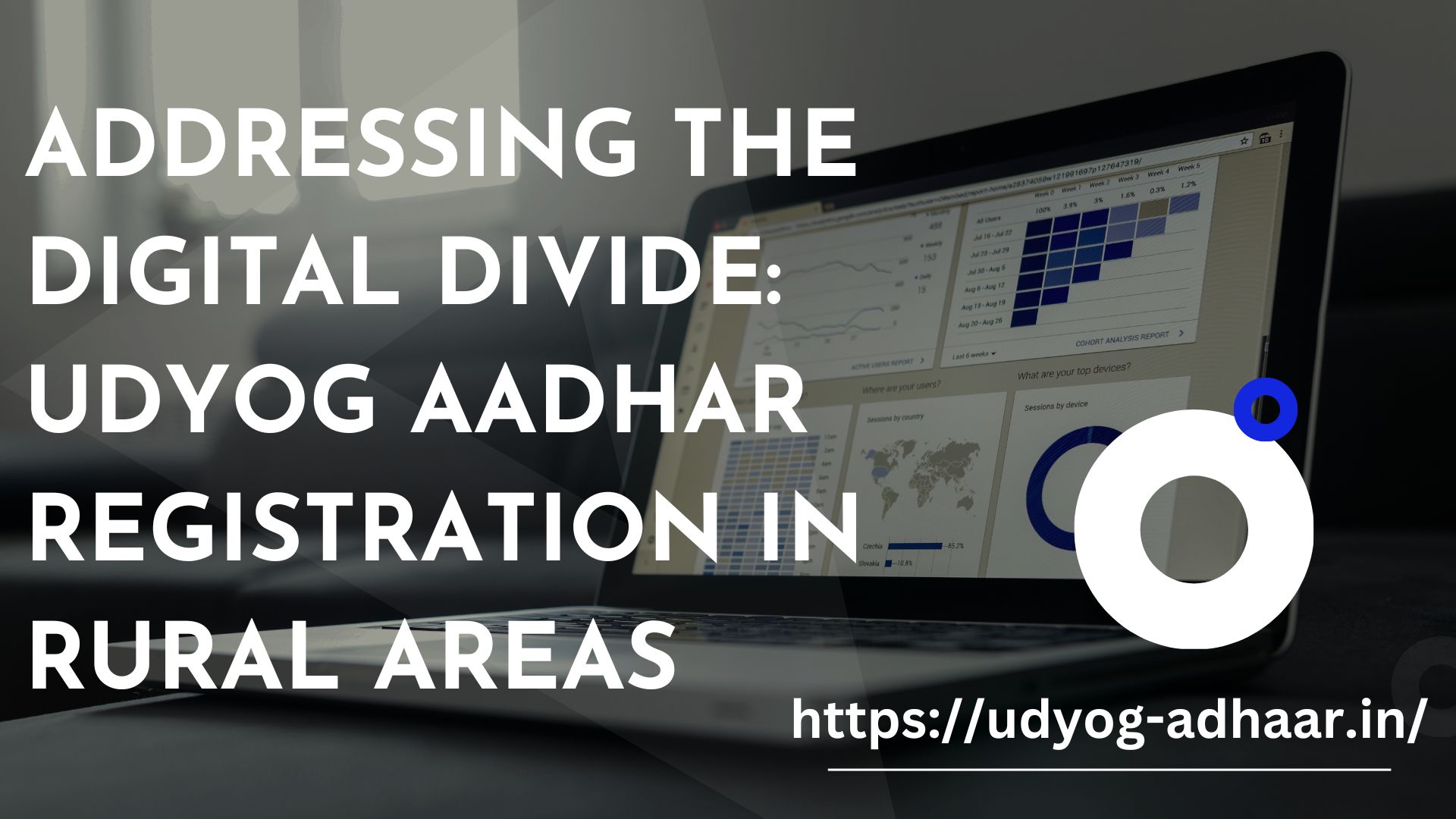Introduction:
The digital divide, characterized by unequal access to digital technologies and the internet, remains a significant challenge in India, particularly in rural areas. Bridging this divide is crucial for promoting inclusive growth and ensuring that rural entrepreneurs can leverage the benefits of formalization. Udyog Aadhar Registration has emerged as a transformative tool in addressing the digital divide by enabling rural businesses to register and formalize their operations. In this article, we explore how Udyog Aadhar is helping bridge the digital divide and promoting rural entrepreneurship.
Digital Literacy Initiatives:
To ensure that Udyog Aadhar Registration reaches rural areas, the government has initiated digital literacy programs. These programs educate rural entrepreneurs about the registration process, the benefits of formalization, and how to navigate digital platforms effectively.
Mobile-First Approach:
Recognizing the widespread use of mobile phones in rural India, Udyog Aadhar Registration has been designed to accommodate mobile applications. This mobile-first approach enables entrepreneurs to complete the registration process using their smartphones, reducing the barriers associated with limited access to computers.
Common Service Centers (CSCs):
Common Service Centers, established under the Digital India initiative, act as intermediaries between rural entrepreneurs and the Udyog Aadhar Registration process. These centers provide assistance, guidance, and access to digital resources, making it easier for rural businesses to register.
Localized Outreach:
Udyog Aadhar Registration has implemented localized outreach strategies in rural areas. Workshops, training sessions, and awareness campaigns are conducted in local languages, ensuring that rural entrepreneurs understand the benefits of formalization and how to complete the registration process.
Collaboration with Financial Institutions:
Udyog Aadhar collaborates with financial institutions to extend registration facilities to rural areas. These institutions provide guidance on registration and also offer financial services, encouraging entrepreneurs to formalize their businesses and gain access to credit.
Assistance from Field Officers:
In some regions, field officers are appointed to assist rural entrepreneurs in the Udyog Aadhar Registration process. These officers provide on-ground support, clarify doubts, and ensure that the registration process is smooth and accessible.
Paper-Based Registration Option:
To cater to entrepreneurs with limited digital literacy, Udyog Aadhar offers a paper-based registration option. This ensures that even those without internet access can formalize their businesses and benefit from government incentives.
Empowering Rural Women Entrepreneurs:
Udyog Aadhar Registration also empowers rural women entrepreneurs by facilitating their formalization. This leads to increased gender equality, economic empowerment, and improved livelihoods in rural communities.
Localized Registration Centers:
Udyog Aadhar Registration has established localized registration centers in rural areas to provide direct assistance to entrepreneurs. These centers serve as physical points where entrepreneurs can receive guidance, fill out registration forms, and submit necessary documents, minimizing the challenges associated with online registration.
Digital Infrastructure Development:
To bridge the digital divide in rural areas, Udyog Aadhar contributes to the development of digital infrastructure. This includes setting up internet connectivity in remote regions, establishing community computer centers, and providing access to digital resources that enable entrepreneurs to complete their registrations.
Integration with E-Governance Initiatives:
Udyog Aadhar is integrated with various e-governance initiatives aimed at rural development. For instance, it can be linked with programs related to agriculture, rural employment, and skill development, creating a seamless ecosystem that empowers rural entrepreneurs and maximizes the impact of government initiatives.
Feedback Mechanisms and Continuous Improvement:
Udyog Aadhar regularly seeks feedback from rural entrepreneurs about their registration experiences. This feedback-driven approach allows for continuous improvement of the registration process, ensuring that it remains user-friendly and accessible to those in rural areas.
Rural Entrepreneurship Awareness Campaigns:
In addition to registration, Udyog Aadhar conducts awareness campaigns about the benefits of rural entrepreneurship and formalization. These campaigns not only encourage entrepreneurs to register but also educate them about various government schemes and opportunities available to them.
Empowering Local Economies:
As more rural businesses formalize through Udyog Aadhar Registration, local economies receive a significant boost. Formal businesses are more likely to attract investment, engage in government procurement, and contribute to the overall development of rural areas.
Conclusion:
Udyog Aadhar Registration is playing a pivotal role in addressing the digital divide and promoting rural entrepreneurship in India. Through digital literacy initiatives, mobile accessibility, localized outreach, and collaboration with financial institutions, Udyog Aadhar ensures that rural entrepreneurs can easily formalize their businesses and access government incentives. By bridging the digital gap and enabling rural businesses to participate in the formal economy, Udyog Aadhar contributes to inclusive economic growth and empowers rural communities. As these initiatives continue to expand, India moves closer to realizing its vision of a digitally inclusive and economically vibrant nation.



